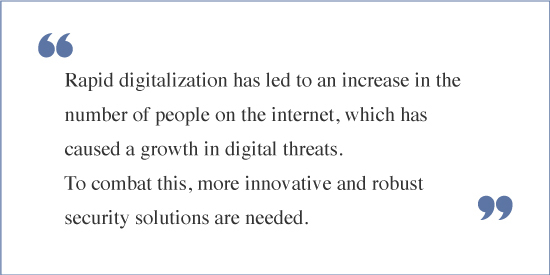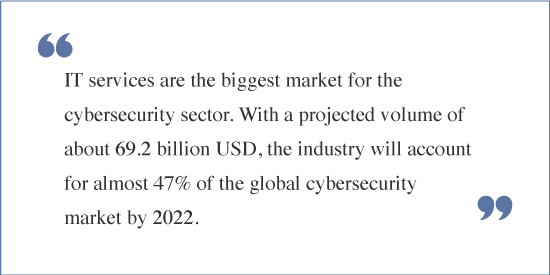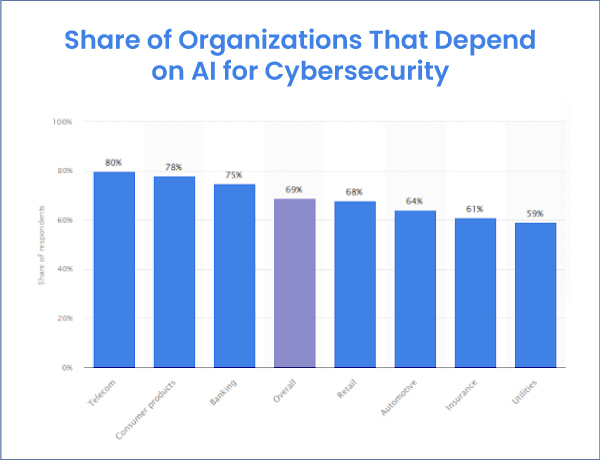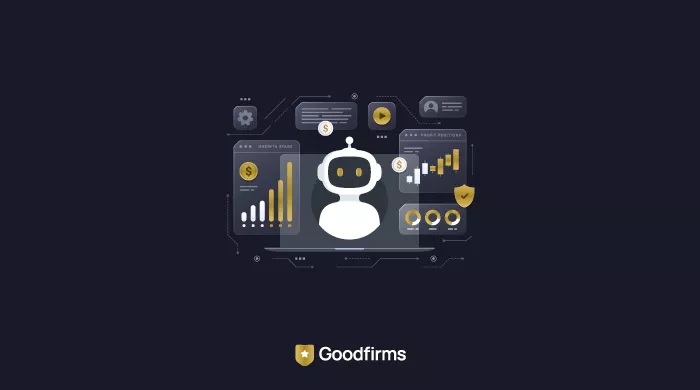Digitalization has had a profound effect on almost every sector of the world. Our jobs became much more manageable, lives more comfortable, and the world more connected as new technologies and innovations were introduced.
Digitalization has helped spread the internet to every corner of the world. Some of the most notable sectors that have been transformed by rapid digitalization are healthcare, education, manufacturing, agriculture, IT, hospitality, and entertainment. But as every coin has two sides, digitalization is doing wonders for people but, on the other hand, has created a lot of security challenges and causing privacy issues.

Cybersecurity is one such issue that has become a significant concern for people. Increasing use of the internet, a growing number of connected objects, networks, and systems has helped economies grow but at the same time opened a gateway to multiple digital threats and attacks.
Phishing, malware, ransomware, man-in-the-middle attack, and zero-day exploit are some of the most common cyber attacks that have emerged as a significant concern for experts. In this post, we'll discuss cybersecurity in detail, the types of digital threats that impact it, and the role of AI in downplaying these threats and strengthening cybersecurity.
A Brief Look into Cybersecurity
As digital threats continue to emerge, cybersecurity has become a major concern around the world. With more and more services available online, it's becoming easier for hackers to target individuals and businesses.
Cybersecurity involves the use of high-tech tools, measures and protocols designed to predict possible loopholes and protect private and public systems from any digital threats.
Cybersecurity is as critical as national security because data breaches not only threaten the security and privacy of the common public but also can lead to sensitive information pertaining to government and national security falling into the wrong hands. The necessity for tighter and impeccable security has spurred the growth of the cybersecurity market.

According to Statista, the revenue generated by cybersecurity is anticipated to reach 146.30 billion U.S. dollars in 2022, globally. IT Services were found to be the largest market segment of the cybersecurity sector, with a projected volume of 69.2 billion U.S. dollars in 2022.
Most Common Cyber Threats Around the World
.jpg)
Artificial Intelligence and Cybersecurity
Artificial intelligence has been one of the most influential and promising technologies these past few years. It remains on the list of trending technologies that are transforming the world. AI has disrupted almost every sector today, be it manufacturing, entertainment, retail, gaming, education, or automotive; it has successfully transformed them for the best.
One such sector is cybersecurity which has been greatly benefitted by artificial intelligence. AI helps predict potential loopholes in the system that can become a serious threat in the future so that they can be eliminated, thus strengthening its security.
According to Statista, based on a study carried out on organizations implementing AI for cybersecurity, it was found that approximately 80% of the respondents from the telecom sector believed that AI played a crucial role for mitigating cybersecurity issues. At the same time, 75% of respondents from banking organizations thought that AI was a vital element in their cybersecurity practices.

Source: Statista
Today data is considered the new oil, which means that it is the most powerful thing in the world. This has opened some new opportunities for entrepreneurs and technocrats and simultaneously for hackers with malicious intentions. AI is one such technology that analyzes countless available information, data, research papers, and news stories to curate the list of potential threats using two main techniques, namely NLP(natural language processing) and ML(machine learning).
These two AI technologies protect users' systems by notifying them about malicious files and unsafe IP addresses that might lead to data theft. These two systems play a significant role in strengthening system security in corporations and saving considerable amounts of money and time. AI systems do the work of security analysts in a fraction of their time, thus providing early response and threat analysis.
Let's learn more about the top roles played by AI in cybersecurity.
Key roles of AI in cybersecurity
As mentioned, AI is playing a crucial role in identifying, and mitigating security issues through implementation of several security measures and protocols.
#1 Machine learning improves cyber threat detection
As mentioned before, machine learning(ML), the most vibrant part of AI, continuously learns by analyzing numerous amounts of available data. When it comes to cybersecurity, this aspect of ML plays a pivotal role as it analyzes all the data available relating to past cyberattacks and security issues, hacking patterns, and related data to predict the possible threats in advance that are most likely and those that can happen in the rarest cases.
Fig: Machine learning based phishing detection model
Source: Springer
The biggest boon of advanced detection is that it gives the authorities or organizations ample time to handle the potential threats. Thus saving a considerable amount of time and money for the organization.
#2 Phishing detection and prevention
Phishing is one of the most common cybersecurity threats nowadays wherein emails are sent called phishing emails from a disguised entity portraying to be from a reputable source. These mails are the weapon that usually trick people into logging in and sharing sensitive data such as passwords.
Business AI and machine learning has helped detect these emails and notify the users in advance about the threat. AI compares the email's pattern, content, and metadata with a number of recorded phishing mails from past instances. When similarity is detected, the AI-based security system generates an alert notifying the user of the potential threat.
#3 More secure authentication practices
AI-powered authentication practices are one of the most secure password protection and authentication methods. AI-enabled authentication systems have become very common nowadays in smartphones and offices. Biometric authentication is one of the most common AI-enabled security practices in every smartphone.
Face recognition, iris recognition, and fingerprint recognition are the most secure authentication practices. In the same way, as in other cases, AI technology analyzes the human input or facial expression and features to decide whether it matches the registered one. These practices are considered one of the safest and impeccable security measures most common nowadays in offices and smartphones.
#4 Simplifies and automates network security
Monitoring a small network and its various endpoints is a crucial task that humans can manage effectively, but in contrast, managing complex networks from large organizations such as Twitter and Facebook is very tough. Managing the security of complex networks becomes a challenging, time-consuming task and inefficient if done manually.
Artificial intelligence is the best tool to manage the network security of complex networks. It automates these time-consuming tasks, such as continuously monitoring numerous amounts of data for threats, loopholes, and malicious contents. Moreover, when AI manages such a network's security, there are negligible chances of error or missing a potential threat that comes with a more significant margin of error when handled manually.
According to Statista, Network Security is the most prevalent use case of AI in cybersecurity, and almost 75% of IT executives reported that they use AI for enhancing network security.

Source: Statista
#5 AI for endpoint security
Endpoint security refers to securing the end and entry points of user devices such as smartphones, tablets, laptops, desktops, etc., from malicious and harmful threats and activities. Endpoint security is a crucial part of cybersecurity these days, as it's imperative to protect data from getting into the wrong hands and restrict access to these endpoints to only authorized users.
Approximately 68% of IT executives reported from the survey by Statista that they have been using AI for endpoint security.
AI-enabled endpoint security systems play a crucial role in identifying malicious files or operations and detecting anomalies in user behavior, unauthorized access or behavior of applications and services. The most vital function of these systems is to detect and block unauthorized or suspicious activities before execution and, in case of rare ransomware attacks, revert the system and data to a safe state.
AI a Boon for Cybersecurity
AI is playing an irreplaceable and pivotal role in strengthening the cybersecurity sector, and organizations are heavily investing in these technologies to enhance their organization's digital security. In a research conducted by Capgemini, it was found that almost three in five firms reported that AI implementation improves the efficiency and accuracy of cyber analysts.
Moreover, three out of four executives mentioned that AI helps their organizations acknowledge and respond to security breaches faster. The same report also pointed out that most organizations believe that AI reduced the cost of detecting and reporting violations by 12%.
Goodfirms Opinion: AI has aided cybersecurity by strengthening it to its core and assisting organizations in predicting threats and addressing them at the earliest.
%20(1).jpg)




.jpg)



